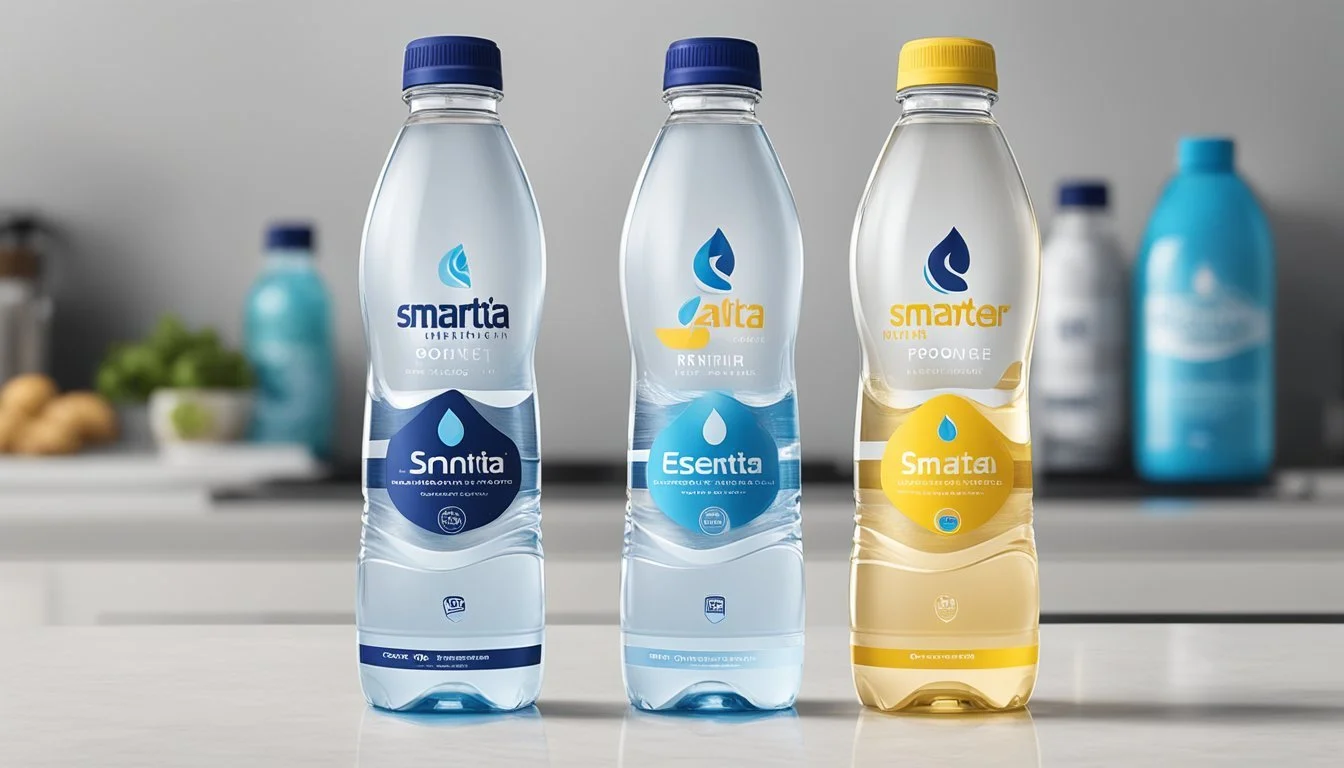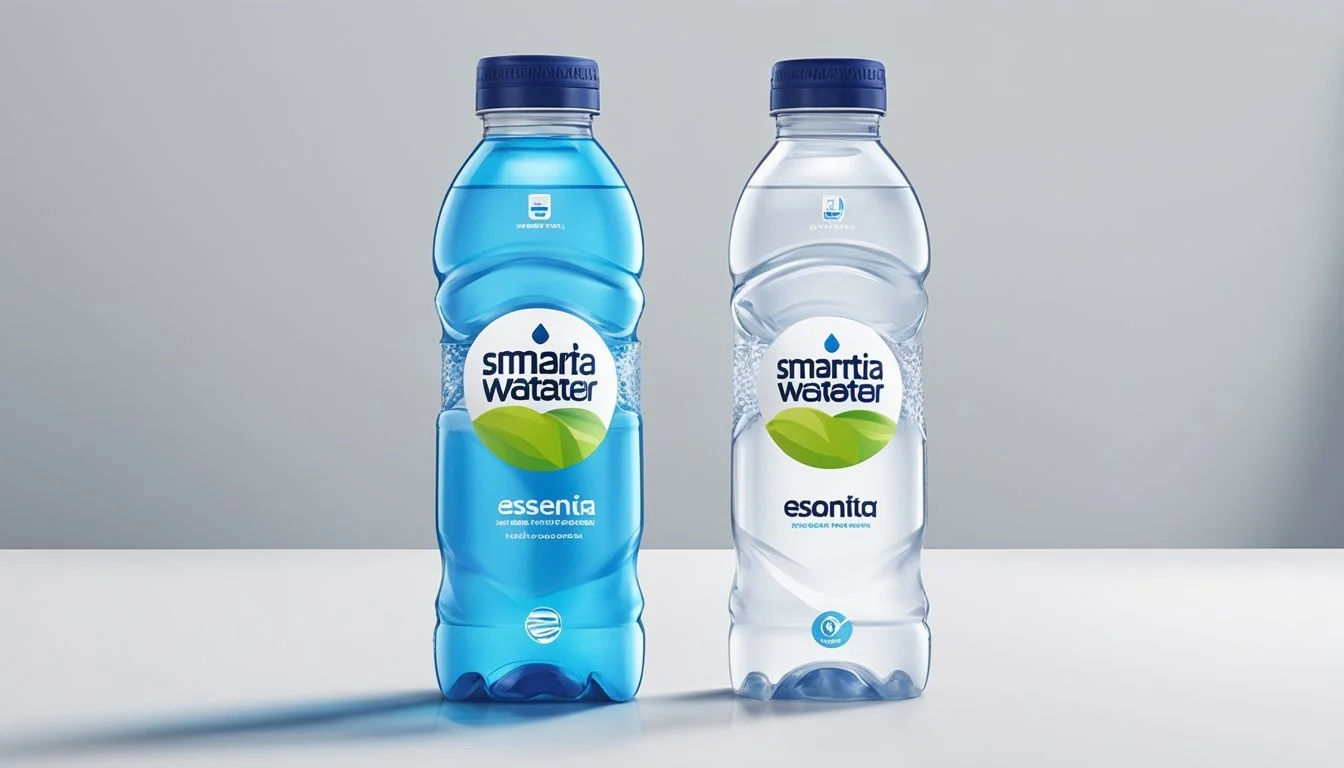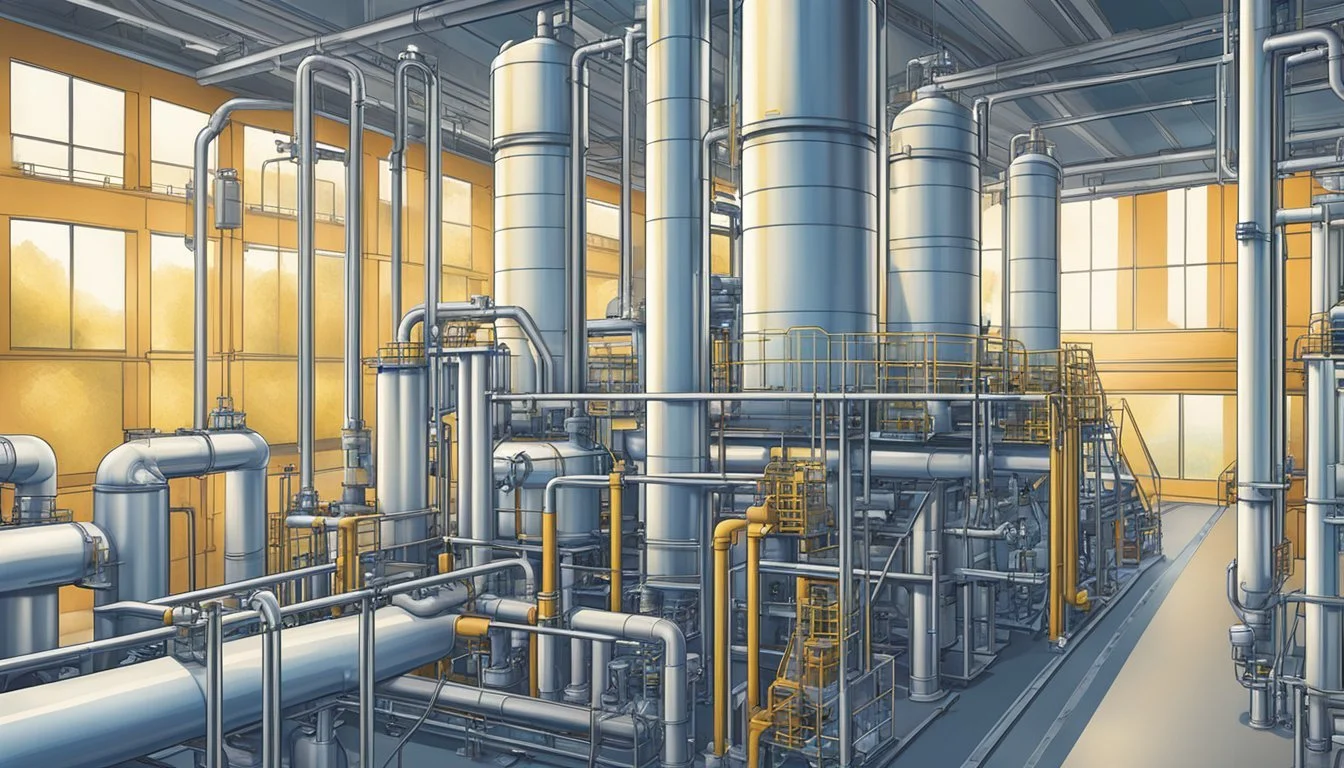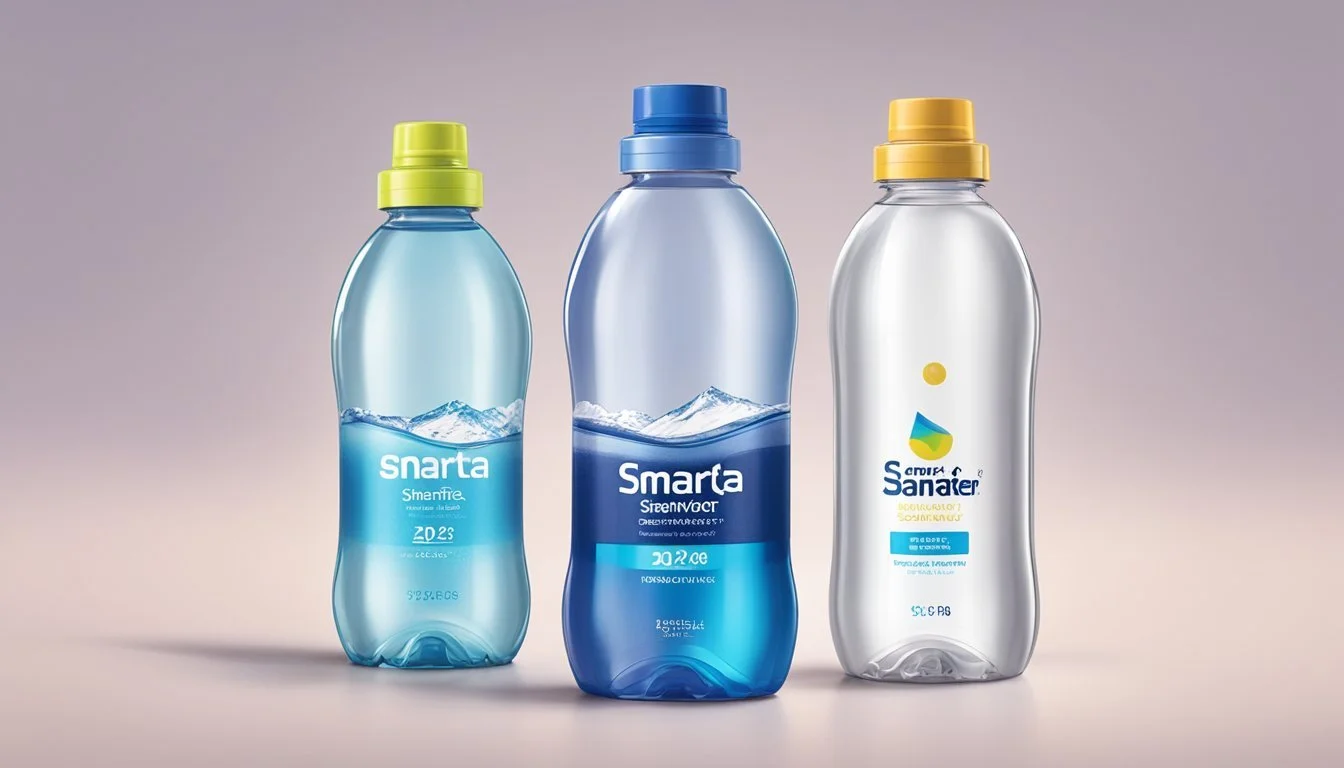Essentia vs. Smartwater
Comparing Quality and Benefits of Bottled Waters
In the realm of bottled water, Essentia and SmartWater are prominent players that have captured the attention of hydration-conscious consumers. Essentia stakes its claim in the market with its ionization process, promising water that better hydrates with a higher pH, theoretically optimizing the water for the human body. On the other hand, SmartWater is distilled for purity and enhanced with electrolytes, offering a crisp taste and the promise of a performance boost similar to that of sports drinks.
Evaluating the superiority of either Essentia or SmartWater is not just a matter of taste preferences or brand loyalty; it's also about understanding the processes each brand uses to enhance their water. While Essentia focuses on its alkaline properties, which some suggest may contribute to better hydration and other health benefits, SmartWater emphasizes the addition of electrolytes for taste and the potential for improved hydration. However, the science behind whether or not these enhancements truly make one brand better than the other is nuanced and often contested.
Choosing between Essentia and SmartWater ultimately comes down to personal preference and individual beliefs about health benefits. As consumers navigate the plethora of claims made by bottled water brands, a clear and informed choice requires a critical look at the processes, ingredients, and potential health impacts. Hence, for those seeking to discern which water might be better, comprehensive analysis and preference play key roles in selection.
Understanding Bottled Water
In evaluating bottled waters like Essentia and Smartwater, it's imperative to understand the nuances of pH levels, mineral content, and the function of electrolytes in hydration.
Defining Alkaline and Electrolyte-Enhanced Water
Alkaline water possesses a pH level above 7, which is considered basic on the pH scale. Brands such as Essentia claim to offer water with a pH of 9.5 or higher, achieved through processes like reverse osmosis and the addition of electrolytes. Electrolyte-enhanced waters include added minerals like potassium, calcium, and magnesium, which are marketed to improve hydration and taste.
The Significance of pH Levels in Bottled Water
The pH level of water can affect taste and perceived freshness, with a higher pH often associated with a smoother taste. While typical drinking water has a neutral pH of 7, alkaline waters like Essentia tout pH levels considerably higher. It is suggested that these levels may provide health benefits, although scientific consensus on this matter is not definitive.
The Role of Minerals and Electrolytes in Hydration
Minerals and electrolytes are pivotal for effective hydration, aiding in numerous body functions. They help regulate nerve and muscle function, balance body acidity and pressure, and facilitate the rebuilding of damaged tissues. Bottled waters with a higher total dissolved solids (TDS) content may offer more minerals and electrolytes, claiming to be beneficial for those who lead active lifestyles or need increased hydration efficiency.
Health and Safety Aspects
When considering bottled water like Essentia and Smartwater, one must take into account the health and safety implications of the packaging and the water quality itself.
Analyzing the Impact of Plastic Bottles on Health and Environment
Plastic bottles, often made from polyethylene terephthalate (PET), can contain substances like BPA (bisphenol A). BPA exposure is a concern due to potential health effects on the brain and prostate gland of fetuses, infants, and children. Furthermore, plastic production and disposal pose environmental challenges, contributing to pollution and resource depletion.
Aspect Potential Impact on Health Potential Impact on Environment BPA in Plastic Hormonal disruptions Wildlife exposure Plastic Disposal Ingestion of microplastics Land and marine pollution
While both brands use plastic bottles, it's important for consumers to know whether they are BPA-free. Moreover, the environmental aspect cannot be overlooked as plastic waste contributes significantly to pollution.
Potential Contaminants in Tap vs. Bottled Water
The quality of bottled water, like Essentia and Smartwater, versus tap water is often debated. Here, we consider the presence of potential contaminants such as lead, arsenic, mercury, and PFAS chemicals.
Tap Water: Although regulated, tap water can sometimes contain contaminants such as lead from old pipes, arsenic from natural deposits, and mercury, often from pollution. The Environmental Protection Agency regulates the levels of these contaminants, although they may not always be entirely absent.
Bottled Water: Bottled waters are also subject to regulation, albeit by the Food and Drug Administration. They are often advertised as pure, but there have been instances where plastic leachates and contaminants have been detected in higher concentrations than allowed in tap water.
It is vital for consumers to be informed about the potential health risks associated with these contaminants, regardless of whether they choose tap or bottled water.
Production and Purification Processes
The production and purification processes of bottled water are critical in determining its quality. Both Essentia and Smartwater employ advanced purification techniques to ensure the purity and taste of their water. These processes significantly influence the final water quality, with steps such as reverse osmosis, distillation, and ionization playing central roles.
Reverse Osmosis and Its Effects on Water Quality
Reverse osmosis is a key component in Essentia's purification process, wherein water is forced through a semi-permeable membrane to remove impurities. The resulting product is water that is 99.9% pure. Smartwater also uses reverse osmosis, followed by the addition of electrolytes for taste enhancement. Both brands rely on this technology to reduce contaminants and improve water quality.
Understanding the Distillation and Ionization Processes
While distillation is not explicitly mentioned for either brand, the process involves boiling water to produce vapor that, when condensed, becomes purified distilled water. Essentia later utilizes ionization in their purification process, charging the water to elevate its pH and create alkaline water. This is a notable difference from Smartwater, which does not undergo ionization.
Assessing Filtration Methods and Standards
Filtration is a fundamental step for both brands. Essentia uses micro-filters and ultraviolet exposure, part of its proprietary process, to filter water to 99.9% purity and infuses it with electrolytes. Smartwater employs a multi-step filtration process though specifics beyond reverse osmosis are not detailed. The emphasis for both brands is on achieving high purity and adhering to industry standards for water quality.
The thoroughness of these processes reflects each brand's dedication to providing high-quality bottled water.
Taste and Personal Preferences
In the world of bottled waters, taste and personal preferences are largely influenced by the source of the water and the treatment methods used. This section explores how these factors shape the flavor profiles of Essentia and Smartwater, two leading brands in the bottled water market.
How Water Source and Treatment Affect Flavor
Water's flavor is significantly impacted by its source and the purification processes it undergoes. Natural springs can impart a distinct mineral flavor which is often described as fresh or earthy. On the other hand, water treated with reverse osmosis and infused with electrolytes, as is the case with some brands, may have a cleaner and crisper taste.
Mineral water, deriving from underground reservoirs, typically carries a taste that reflects the minerals it contains. These can include calcium, magnesium, and potassium. The mineral content not only affects the health benefits but also the overall flavor profile of the water.
Comparing the Flavor Profiles of Essentia and Smartwater
The flavor profile of Essentia is characterized by its unique ionization process. This brand is known for its high pH level, which is achieved through micro-filtration, reverse osmosis, and ultraviolet exposure. Essentia then infuses water with electrolytes, which may create a taste that some consumers find smoother and more palatable.
In contrast, Smartwater is vapour-distilled, and it includes added electrolytes for taste. This process can yield a distinct, crisp flavor profile. Consumers often describe Smartwater as having a pure and refined taste that mirrors the quality of the production process it undergoes.
Flavor, as a subjective measure, varies widely among individuals, and preferences can differ greatly. It is not uncommon for some consumers to favor the mineral notes in one brand over the subtle yet pronounced electrolyte-enhanced taste in another. The choice between Essentia and Smartwater ultimately comes down to personal preference for the taste attributes imparted by their respective source waters and treatment methods.
Brand Comparisons and Differentiators
In the bottled water market, brands such as Essentia and Smartwater stand out for their unique selling propositions and marketing tactics. This section will evaluate their brand strategies, features, and efforts concerning environmental and ethical considerations.
Essentia vs. Smartwater: Brand Strategies and Consumer Reception
Essentia Water has positioned itself as a premium alkaline water provider, emphasizing the health-related benefits of its ionized hydration products. With a distinct pH of 9.5 or higher, Essentia appeals to health-conscious consumers. On the other hand, Smartwater, owned by Coca-Cola, banks on its vapor-distilled water with added electrolytes, aligning with an audience that values purity and taste derived from innovative production processes.
Consumer reception seems to tilt in favor of the brand that aligns with their personal health beliefs and hydration needs. While Poland Spring and Dasani (another Coca-Cola product) compete in the space, Essentia and Smartwater have garnered loyal followings through differentiated branding and targeted marketing.
Distinguishing Features Between Various Water Brands
Fiji Water: Known for its natural artesian source, its unique mineral profile, and smooth taste.
Evian: Sourced from glacial runoff in the French Alps, contains natural minerals like potassium and magnesium.
Voss: Recognized for its iconic bottle design and artesian source from Norway.
Nestlé Waters (which includes Poland Spring): Offers a variety of regional spring waters with distinct taste profiles.
Perrier: Famed for its naturally carbonated mineral water.
LaCroix: Not a bottled water, but a popular sparkling water brand with a variety of flavors.
While Starbucks offers its Ethos Water as part of a social initiative, brands like Fiji and Evian have become synonymous with luxury. Essentia's ionization process and Smartwater's vapor distillation set them apart as leaders in their respective niches for technologically treated waters.
Environmental and Ethical Considerations of Brands
Sustainability and ethical sourcing are growing concerns among consumers, which influence brand reputation and customer loyalty. Nestlé has faced criticism over water sourcing practices, propelling the company to increase transparency and sustainability efforts. Coca-Cola's Smartwater and Ethos Water partake in various environmental and community initiatives to offset their carbon footprint. However, consumers remain critical of the broader environmental impact of bottled water, pushing brands like Essentia and Smartwater to constantly innovate and improve their environmental stewardship.
Consumer Considerations for Purchase
When choosing between Essentia and Smartwater, consumers must weigh their lifestyle needs and the availability of these products. This section aims to provide clarity on how these factors should influence their bottled water selection.
Relating Bottled Water to Lifestyle and Activity Levels
For individuals who lead active lifestyles and prioritize workout hydration, the choice of water can be crucial. Essentia water, with its higher pH level, claims to provide better hydration and is often marketed to those with a fitness-oriented lifestyle. Smartwater, on the other hand, offers added electrolytes for taste, which may appeal to those seeking a crisp flavor post-workout.
Convenience and Accessibility in Bottled Water Choices
The convenience of obtaining preferred bottled water brands is a significant factor. Smartwater and Essentia are widely available in various stores and online platforms like Amazon, making them easily accessible to most consumers. For those who prefer sparkling or still options, Smartwater also provides a sparkling variant. An alternative to traditional plastic bottles is boxed water, which might appeal to environmentally conscious consumers but is less commonly found in the product lines of Essentia and Smartwater.





